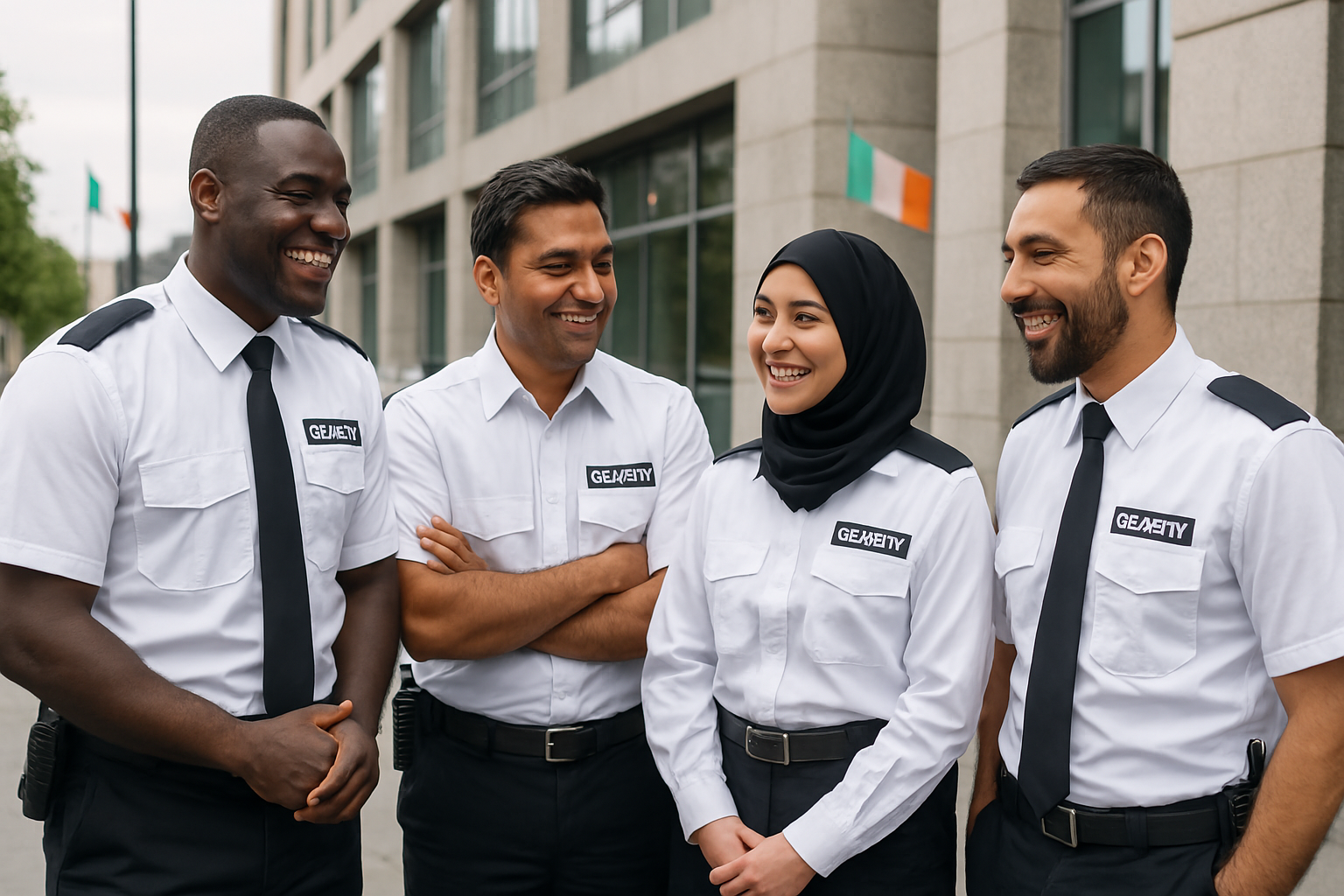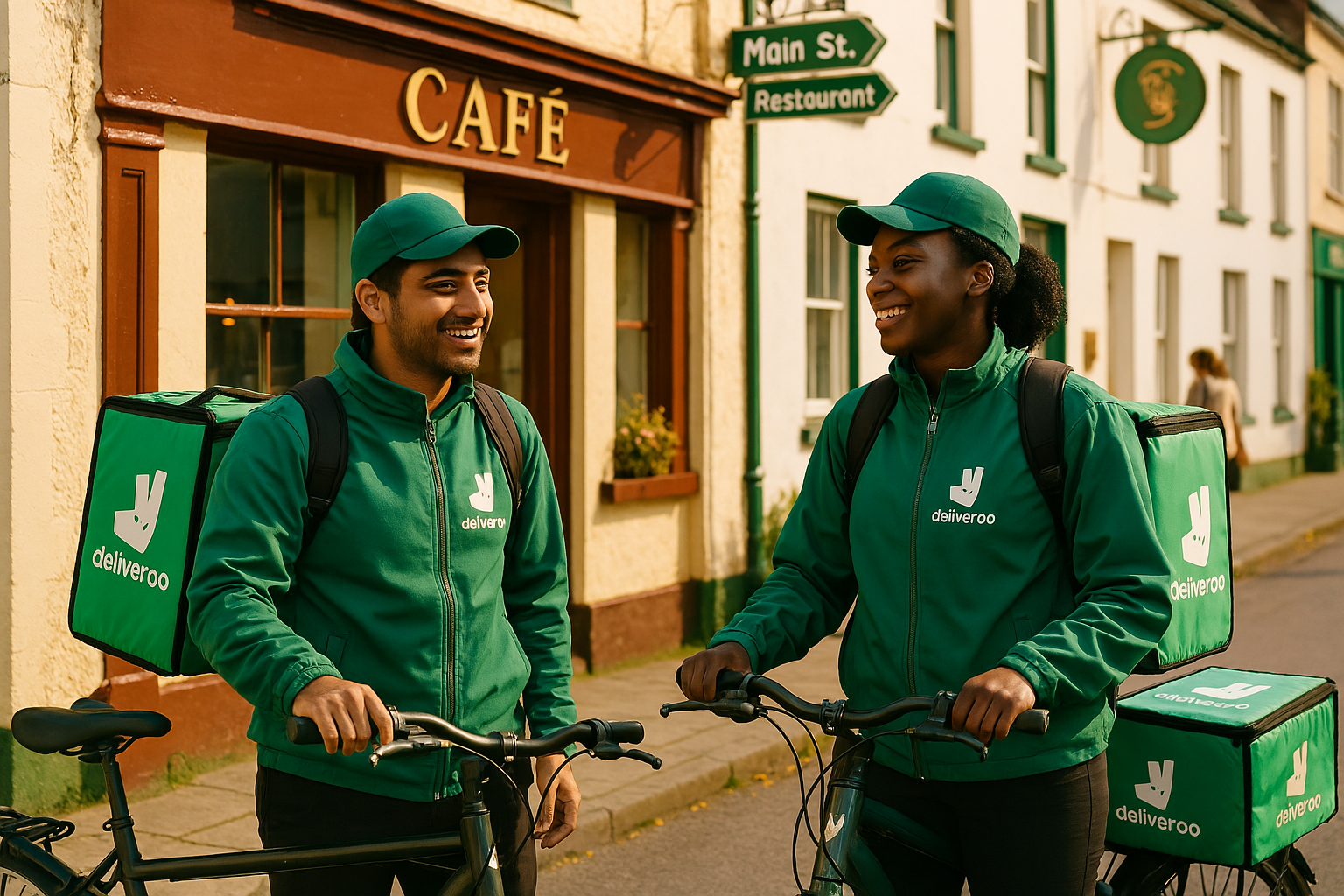Introduction: Unlocking a Career in Irish Security
If you’re a non-EU national looking for a stable, well-paying career in Ireland, security jobs might be your perfect entry point. With increasing demand for trained personnel in retail, corporate, construction, and hospitality sectors, security guard jobs in Ireland for foreigners are not only accessible but also offer solid income and the potential for long-term residency.
In this guide, you’ll learn everything you need to know — from the roles available, salaries, visa processes, to how you can apply successfully. Whether you’re just starting your job search or ready to move, this could be your first step toward a brighter future in Ireland.
Why Security Jobs in Ireland Are Ideal for Non-EU Applicants
1. High Demand, Low Entry Barrier
Ireland’s booming infrastructure and tourism industries have created a constant demand for security officers. The best part? You don’t need a university degree. Most positions require:
- A valid PSA (Private Security Authority) license
- Basic English communication skills
- Good physical fitness
- Clean background check
2. Competitive Salary and Benefits
Security guards in Ireland typically earn:
| Position | Average Monthly Salary (€) |
|---|---|
| Static Security Guard | €2,000 – €2,600 |
| Mobile Patrol Officer | €2,500 – €3,000 |
| Event Security | €15 – €20/hour |
| Nightshift Security | Additional pay incentives |
Some companies also offer:
- Paid training and PSA certification
- Accommodation support
- Work permit sponsorship
- Career growth into supervisory roles
Types of Security Jobs You Can Apply For
Static Security Guard
Work in malls, offices, and buildings. Duties include surveillance, access control, and reporting.
Event Security Staff
Temporary but high-paying roles at concerts, festivals, and sports events. Great way to network and gain experience.
Mobile Patrol Officers
Patrolling multiple locations. Requires a driving license and offers higher pay due to flexibility demands.
Construction Site Security
Prevent theft and monitor safety on-site. Often involves night shifts and isolated locations.
Do You Need a Visa? Let’s Talk Work Permits
For non-EU citizens, working legally in Ireland requires a valid work permit. Here are two common options:
1. General Employment Permit (GEP)
This permit is suitable for low-to-medium skilled roles, including security jobs. Requirements include:
- A confirmed job offer with a salary of at least €30,000/year
- Employer must be registered in Ireland
- Job must be advertised in Ireland and EU for 28 days before offer
2. Critical Skills Employment Permit
Usually for high-tech and healthcare jobs. Not applicable to security roles but useful for spouses of GEP holders who want to switch roles.
👉 Pro tip: Look for employers willing to sponsor your permit. Many major Irish security firms do so regularly.
How to Apply for Security Jobs in Ireland
Here’s a step-by-step guide to get started:
- Update Your CV – Use a professional Irish-style format.
- Obtain a PSA License – Some employers offer assistance post-hire.
- Apply Online – Use sites like:
- Jobs.ie
- IrishJobs.ie
- Indeed Ireland
- Security companies’ career pages (e.g., Securitas, G4S)
- Ace the Interview – Show confidence, punctuality, and basic English.
- Secure Work Permit – Your employer will guide you through the application process.
Real Story: How Muhammad From Pakistan Became a Supervisor in 2 Years
Muhammad, a 26-year-old from Lahore, arrived in Ireland in 2021 on a General Employment Permit. He started as a night shift guard in Dublin for €2,200/month. Within six months, his dedication led to a promotion. Today, he oversees a team of 8 at a tech company campus.
His advice? “Be on time, respect rules, and speak politely. It’s not just about guarding — it’s about building trust.”
Top Companies Hiring Non-EU Security Personnel
- G4S Ireland
- Securitas Ireland
- Manguard Plus
- Bidvest Noonan
- Synergy Security Solutions
Many of these employers offer PSA training support and work visa assistance. Look out for postings that say “Sponsorship available” or “Permit-friendly employer.”
Skills That Make You Stand Out
While the job may sound straightforward, employers value:
- Basic English communication
- CCTV monitoring knowledge
- Conflict de-escalation skills
- Customer service mindset
Bonus skills: First Aid certification, driving license, prior military/police experience.
FAQs
Q: Can I apply for security jobs in Ireland without a work permit?
A: No. You must either have an Irish/EU passport or secure a work permit sponsored by an employer.
Q: What is a PSA license and how do I get it?
A: It’s a mandatory security license in Ireland. You can apply through the PSA website once you complete approved training.
Q: How long does it take to get a work permit?
A: Typically 6–8 weeks, but can vary depending on employer documentation and application accuracy.
Q: Are there age limits for applying to security jobs?
A: Most jobs accept applicants between 18–55, but this can vary by employer.
Q: Is accommodation included in security jobs?
A: Some companies offer shared housing or housing allowance, especially in rural or high-demand urban areas.
Humanized Ending: You Deserve a Fresh Start
We know leaving your home country and chasing a job in a new land isn’t easy. But you’re not alone. Thousands of non-EU workers like you are building stable, dignified lives in Ireland — and the security industry is often where it begins.
Whether you want to support your family, grow your career, or simply experience life in a peaceful country, security jobs in Ireland offer that first stepping stone. It’s not just about guarding a gate — it’s about guarding your future.
Conclusion: Make the Move Today
Security jobs in Ireland offer a real opportunity for non-EU citizens seeking honest work, stable pay, and the possibility of permanent residency. With growing demand, competitive salaries, and a clear path to employment, this could be your chance to start fresh in one of Europe’s most welcoming countries.
👉 Now it’s your move. Start applying, stay committed, and unlock a new life in Ireland.



